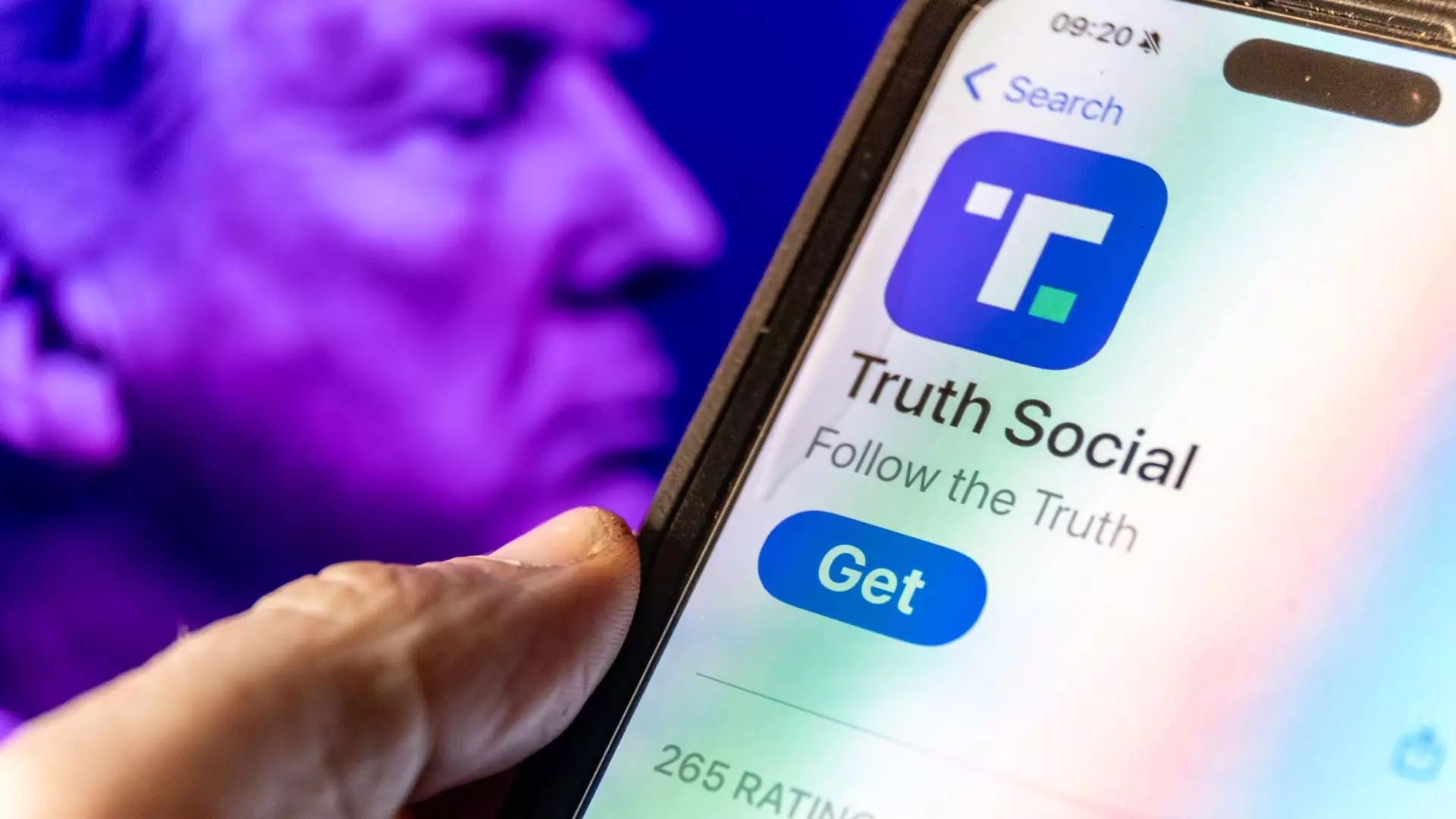As Trump Media continues to navigate the controversial landscape of social media, the recent resignation of Chief Operating Officer Andrew Northwall marks a significant pivot point for the company. This change, unveiled through a regulatory filing, unfolds against a backdrop of legal strife, involving complicated stock conversions and a turbulent relationship with investors.
Andrew Northwall’s resignation in late September caught many industry observers off-guard. While the specifics surrounding his departure remained undisclosed, the company made it clear that it intends to redistribute his responsibilities internally. Such exits at senior levels often signal deeper issues within an organization, especially in industries characterized by rapid change and controversy like social media. Changing leadership in Trump Media appears to reflect the ongoing struggles that are rooted in both financial performance and reputational management.
In a separate yet intertwined development, Trump Media is compelled to issue nearly 800,000 shares to early investor ARC Global Investments II. This directive follows a ruling by Delaware Chancery Court Judge Lori Will, who determined that Trump Media had breached an agreement with ARC regarding the calculation of Class A shares owed post-merger with Digital World Acquisition Corp. This speaks volumes about the simmering tensions and complexities of financial arrangements the company faces.
According to the recent SEC filing, the Delaware judge ruled that the proposed stock-conversion ratio was insufficient. Trump’s media venture will consequently release 785,825 shares valued at roughly $12.7 million at recent stock prices. The confluence of executive turnover and legal battles potentially aligns, hinting that Northwall’s exit could have connections to the broader challenges facing the company.
The legal fallout surrounding Trump Media is not confined to issues of share distribution. The company’s past dealings with Patrick Orlando, the former CEO of Digital World Acquisition Corp, have brought additional scrutiny. Accusations of misconduct from the SEC further complicate matters: Orlando is alleged to have misrepresented information regarding the merger, putting Trump Media under a cloud of uncertainty as investigations unfold. The inquiry initiated by the SEC raises questions about accountability and ethical governance, which could have lasting repercussions for the stakeholders involved.
Legal challenges are no rarity within business sector, yet the particular combination of political affiliations and personal interests in Trump Media adds layers of complexity. With Donald Trump being the majority shareholder, the stakes are exceptionally high, not just for him, but for the broader organization and its visibility in a hyper-partisan social media landscape.
The stock’s performance following the lifting of the lock-up agreement on September 19 has been noteworthy. Following this date, significant sell-offs occurred, including a substantial divestment by United Atlantic Ventures of its 11-million-share stake. The triggering of this liquidation—valued at approximately $128 million—provokes discussions about investor confidence and the perceived stability of Trump Media’s structure.
Despite the turmoil, Trump himself has committed to retaining his nearly 57% ownership of Trump Media. His personal stake, which is theoretically worth around $1.9 billion, suggests a long-term vision, even as the company’s immediate operational and financial realities become more precarious.
As Trump Media transitions under these shifting sands—marked by internal upheaval and external pressures—the journey forward is fraught with challenges. The intertwining narratives of leadership changes, legal disputes, and market reactions paint a challenging picture for the company’s future. Without robust strategic adjustments and a sincere focus on transparency, Trump Media may face not only financial hurdles but also increased scrutiny in an environment marked by societal skepticism of powerful media entities.
Moving forward, the company must prioritize its integrity and strategic vision if it hopes to effectively reclaim its footing in an ever-competitive digital landscape. The convergence of personal investments, political identity, and media influence only complicates an already challenging path, making it critical for stakeholders to monitor developments closely.


Leave a Reply